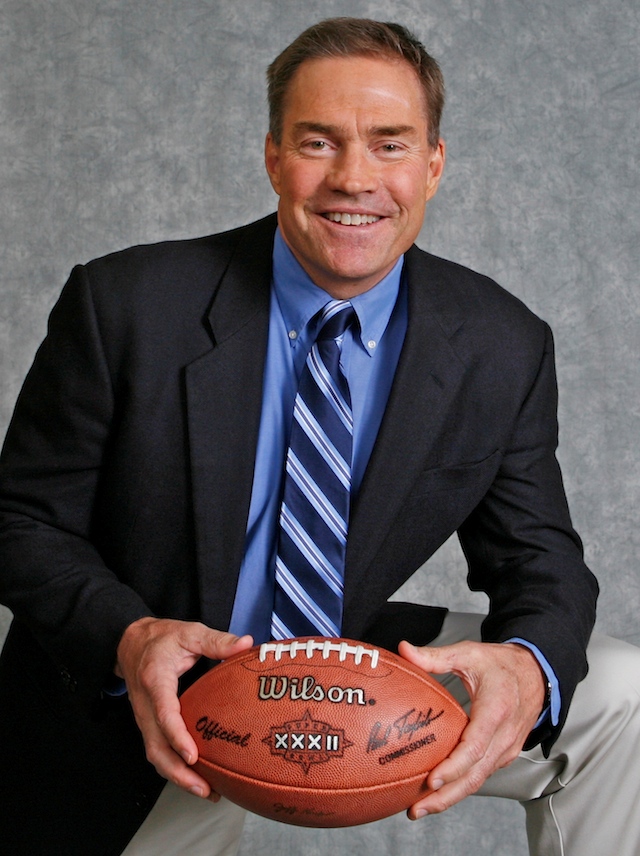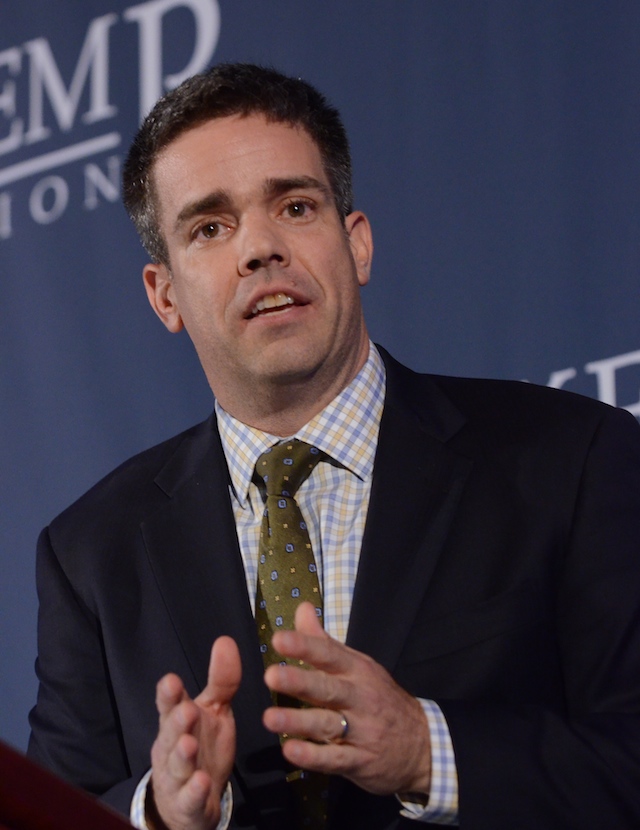by Eric Cochling | Oct 29, 2014
The following is a special report for Georgia Center for Opportunity by Mike Klein. Mike’s other work may be found here.
Video from the Atlanta session may be seen here:
While voters fixate on an election next week that could change Washington’s balance of power, some also are looking ahead to next year’s Federal Election Commission agenda that will include an effort by incoming chair Ann Ravel to overhaul campaign finance disclosure law. Ravel has established her target-of-choice: corporate political action committees and super PAC expenditures after a 2010 U.S. Supreme Court opinion that ended independent spending limits.
Thousands of non-profit groups could become caught in a tidal wave of proposed changes that might impact how local, state and national organizations can advocate for children’s welfare, education, health care and virtually any other policy. The concept of the “anonymous donor” who makes community projects and thinking happen could be derailed without considerable care to protect the rights individuals have to use their personal money as they desire.
“Dark money” is the pejorative term opponents created to talk about corporate political action committee and super PAC spending. Ravel speaks openly about “problems we have with these dark money groups” and her view that “people are getting disgusted about what’s happening.” She says, “Polls have shown that elected officials are primarily serving their large contributors and not their constituents. That view is held equally by Republicans and Democrats.”
The FEC vice chair was at Emory University in Atlanta last week on the final leg of a three-city swing described as a listening tour to gather public input before her 2015 planned initiative. Other stops were Denver in early October and the University of Chicago’s new Institute of Politics that was founded by President Barack Obama’s political operative David Axelrod. Obama appointed Ravel to the six-member Federal Election Commission in October 2013. The FEC has three Republican and three Democratic commissioners. Ravel becomes chair in 2015.
The 1971 Federal Election Campaign Act is the cornerstone of U.S. election law. Perhaps more appropriately, it has become at least a time capsule and perhaps even a tomb as the FECA has not been amended since 1979. Changes to national election finance laws have mainly occurred because of FEC rules and regulations or because federal courts decided various questions brought over three and one-half decades.
In 2010 the U.S. Supreme Court (Citizens United vs. FEC) struck down limits on independent campaign spending by corporations and unions. It opened the door to spending by non-profit groups to support or oppose a candidate without having to disclose donors who could be individuals or other entities including corporations. The Center for Competitive Politics says that spending accounted for $311 million of the $7.3 billion spent in the 2012 election cycle.
Georgia State University law school professor Anne Tucker cited higher numbers when she joined Ravel onstage in Atlanta. Tucker said corporate political action committees spent $360 million in the 2012 election cycle and she said super PAC funds accounted for another $75 million. Tucker said 1,220 super PACs that do not disclose their donors raised over $520 million for the 2014 midterm elections. Tucker like Ravel supports the expansion of disclosure.
Thursday evening’s Emory event was far from a balanced discussion. Twenty-eight speakers approached the microphone and nearly all said the same thing: Someone must stop the inflow of corporate and other big money into politics. “I tell people your vote is your voice but I recently have come to believe that I am wrong. Sadly today your dollar is your voice,” said Robin Collins. “We argue that corporate spending in elections should not be equated to the First Amendment rights of individual citizens,” said Cindy Strickland. Another speaker noted she was “invited to this and also reminded” to attend.
Context is often lost where passion prevails. There was important context from William Loughery who knows of what he speaks. Now living in Georgia, the soft-spoken Loughery is a former chief of staff to United States Senator Arlen Spector, a former FEC staffer and he participated in writing the 1971 Federal Election Campaign Act which as noted above has not been amended in thirty-five years.
“When we wrote the Federal Election Campaign Act there never was any enforcement so why would anyone waste time on independent expenditures,” said Loughery. “The fundamental problem is nobody wants to change the law, nobody wants to make a significant radical change to update it because basically, the whole process would be captive of the current members of Congress and even the members of the Commission are basically captives of Congress. Technology has changed, a lot of other things have changed and there’s nothing being done to update the law.”
Battle plans have specific objectives but battles produce collateral damage. Non-profit groups that focus entirely on policies could become swept up in a federal election campaign law disclosure reform movement. As a young Emory student told the panel, “You have to look for the unintended consequences and protect individual rights, freedom of speech and the legitimacy of our democracy. That’s not an easy task.”
by Georgia Center for Opportunity | Oct 28, 2014
GCO is thrilled to have Jeff and Jimmy Kemp join us at our annual fundraiser on December 4, 2014 at the College Football Hall of Fame in Atlanta. Jeff and Jimmy will be with us to share recollections of their father, the late Jack Kemp, and discuss why his legacy matters today. We will also show how GCO is working each and every day to make Georgia a state where ALL have a real chance to prosper. We look forward to you joining us on December 4, 2014. Register to Attend.
I believe the ultimate imperative for growth and opportunity is to advance human dignity. – Jack Kemp
JEFF KEMP

Jeff Kemp is a quarterback for the family. He is an Ivy League graduate who played eleven seasons as a Quarterback in the National Football League with the Los Angeles Rams, San Francisco Forty-Niners, Seattle Seahawks and the Philadelphia Eagles. Today he is more passionate than ever about strengthening marriages and families and bringing groups and teams together for exciting results.
In 2012, Jeff joined FamilyLife as a Vice President and Catalyst for helping others strengthen families. FamilyLife, based in Little Rock, AR. is a national ministry leader in resources to build and enrich marriages and families along with radio outreach, marriage conferences and other resources to heal and strengthen families. Prior to joining FamilyLife, Jeff founded and led a dynamic organization, named Stronger Families, in the Pacific Northwest from 1993-2010.
JIMMY KEMP

James Kemp (Jimmy) is President of the Jack Kemp Foundation. He is responsible for the creation of the Foundation and secured the donation of his father’s papers to the Library of Congress.
Jimmy serves as a Director of Strategic Business Initiatives at Squire Patton Boggs LLP. He co-founded Kemp Partners, a strategic consulting firm based in Washington, DC, assisting Fortune 500 companies as well as burgeoning firms before Congress, the White House and several federal agencies. He is also an Executive Vice President at Group 47.
Jimmy spent eight seasons as a quarterback in the Canadian Football League, finishing his career in 2001 with the Toronto Argonauts. He also serves as Chairman of the Board for the Hope Community Charter School located in northeast Washington, DC. The school serves 735 pre-K through 8th grade students and has been operating since September 2005.
by Georgia Center for Opportunity | Oct 28, 2014
Visit Duke and UNC Chapel Hill on 11/23/14 – 11/24/14 with Breakthrough Ambassadors. The tour is open to parents and 10th – 12th grade high school students.
Check out this fantastic opportunity through Breakthrough Ambassadors to visit UNC Chapel Hill and Duke for an overnight stay! 10th, 11th, and 12th graders from any high school and parents are all invited – Come and join us. This is a chance that comes to very few, so take advantage of viewing two of the South’s best schools.
COST: $75/person (includes transportation & hotel)
WHEN: Sunday, November 23rd – Depart 7 a.m.
through Monday, November 24th (college visits & return home – around 10:00 p.m.)
HOW: 55 passenger Charter Bus
COLLEGES: Duke University & the University of North Carolina (UNC) Chapel Hill
Space is limited. First come, first served.
Any questions? Contact prhsbreakthrough@gmail.com
Register Now
by Eric Cochling | Oct 2, 2014

Imagine taking schools performing in the bottom 5 percent of all schools in a district, where reading proficiency is 22 percent and math proficiency is less than 3 percent (no, that’s not a typo!), and doubling and tripling those numbers in just two years time.
That would be an amazing accomplishment measured by any standard.
Well, despite sounding impossible, these are the results that Matchbook Learning has achieved in one of the toughest places in the country – Detroit.
And you don’t have to take my word for it.
Sajan George, Founder and CEO of Matchbook Learning will be our guest speaker at our October 16th innovation luncheon. George will be discussing Matchbook’s work in Detroit and how the right use of technology, coupled with creative ways to empower and inspire students and teachers, can set the stage for dramatic turnarounds for failing schools and, more importantly, greater success for students.
Please join us.
Register to Attend
by Georgia Center for Opportunity | Aug 25, 2014

Image retrieved from iamgifted.org.
Georgia Center for Opportunity (GCO) desires to see students flourish. As a way of realizing this vision, GCO supports organizations that have a similar heartbeat to see students succeed. One such organization is the Gifted Education Foundation (Gifted).
This summer, GCO had the privilege of hosting Gifted’s founder, Anthony Flynn, for a Lunch & Learn where he discussed how Gifted got started and the impact it is making in the community. Local high school students, education leaders, and various non-profit workers came to the event to learn more about this promising organization.
Flynn opened the session by sharing an inspiring testimony about his life.
Born to a 17-year-old single mother in Memphis, Tennessee, his childhood was marked by upheaval and transition. Nonetheless, he overcame adversity and earned a scholarship to play football at Tennessee Tech University. College proved to be another period of trials, however, as he found himself surrounded by peers who made negative choices. After attending this school for just a semester, he decided to transfer to the University of Memphis where he would go on to graduate in four years.
After graduating from college, Flynn continued his education and earned a Master of Arts (Religion) from Memphis Theological Seminary. During this time, he worked as a student pastor where he served and mentored many at-risk students. This work led him to become involved in sustainable urban development that focused on restoring the economic, educational, and social foundation of his community, and later to serve as president of a national organization that trains urban leaders to impact America’s 250 most at-risk zip codes. From these experiences, Flynn went on to found Gifted in 2012.
Gifted exists to produce first generation college graduates and marketplace leaders from low-income communities across America. It is built upon the premise that every child has the potential to succeed if given the opportunity and guidance he or she needs.

Image retrieved from iamgifted.org.
Flynn believes that although “16 million American children are growing up in poverty,” they do not have to stay there. They can move forward “with the right educational opportunities and a structured system of leaders guiding them through a proven process.”
Providing this opportunity and guidance is precisely what Gifted seeks to do.
As a way of accomplishing this mission, Gifted has developed a four-phased strategy. Each phase prepares students for their next step in life, equipping them with the skills and resources needed to maximize their potential:
Phase 1: The Gifted Preparatory School
The first phase of the strategy involves preparing high school students for college, careers, and the rest of their life by teaching them general life skills, improving their ability to take standardized tests, building college and career awareness, and directing students toward scholarship and financial aid options.
Phase 2: The Gifted College Access Program
The second phase is designed to serve a select group of students who receive comprehensive life skills development and college readiness training. This training occurs on a college campus throughout students’ junior and senior years of high school. The focus is on improving their writing and standardized test-taking abilities, guiding them through the college application process, scholarships and financial aid, and strengthening their life skills in the realm of decision-making, conflict resolution, and time management, among others.
Phase 3: The Gifted Mentoring Program
The third phase provides students who successfully complete the Gifted College Access Program with hands-on, experiential coaching through the Gifted Enrichment and Retention Curriculum. Each student is assigned to a Life Development Coordinator and placed in cohorts where life-on-life accountability and support is deliberated throughout their entire undergraduate education. Students will also participate in leadership development programs, internships, fellowships, and research graduate school options.
Phase 4: The Gifted Leadership Program
Finally, the fourth phase consists of two tiers:
The first tier will provide college graduates with a key marketplace partner who will serve as a life and career mentor. Graduates will work to develop short, medium, and long-term goals in a variety of life categories. In addition, they will cultivate leadership skills, work to enhance existing relationships, and develop a civic and community engagement plan.
The second tier is for graduates who have the criteria in place to become marketplace leaders. They will receive preparation for mid-level to senior-level executive leadership roles in the marketplace, mentor at least one student in the Gifted program, receive training and opportunity for philanthropy and high-impact community involvement, and be trained to serve as entry-level board members for community and non-profit organizations.

Image retrieved from https://iamgifted.org.
Through the implementation of this strategy, Gifted hopes to achieve three outcomes over the course of a student’s involvement with the program. The first is that Gifted students graduate high school equipped with academic and life skills necessary to enroll in and be successful at a four-year college/university. The second is that Gifted students graduate college and are successfully hired in the marketplace or enrolled in graduate school within six months of college graduation. The third is that Gifted alumni take on the responsibility of mentoring at least one other student within six months of their graduation.
Cultivating the mentality of giving back is important for the continued success of the program and for growing lifelong, benevolent people that will continue to serve their communities.
Gifted’s comprehensive approach prepares students to be successful in college, in their career, and in life. For this reason, GCO is proud to encourage community partners to support Gifted in seeing students reach their full potential.
To learn more about Gifted, get involved with their work, or read stories about their success, visit https://iamgifted.org/.
by Eric Cochling | Dec 20, 2013
Our team at GCO had the privilege of hosting Dr. Rick Hess this week. On Tuesday, Dr. Hess, who is an education scholar (and prolific writer) with the American Enterprise Institute, spoke at an early morning breakfast attended by a group of about 45 people that included politicians, lobbyists, academics, parents, and policy wonks.
While the crowd was diverse, each person shared a common concern about the depressing condition of public education in the state of Georgia and wanted to hear Dr. Hess’ thoughts on the subject. He didn’t disappoint.
Using his book Cage-Busting Leadership as the springboard, Dr. Hess challenged the group to consider how much innovation and real reform could be achieved within the current education system if administrators, teachers, and concerned parents stopped taking “no” for an answer.
He shared example after example of people who were able to break through the “cage bars” erected by overly risk-averse school system lawyers or years of outdated rules that still clogged school procedures and hamstrung teachers from addressing student needs.
The bottom line: With a little questioning and a lot of grit, it is possible to change the system so that children receive better educations.
Although Dr. Hess focused on ways to improve the system from within, he didn’t shy away from endorsing school choice as an important tool for giving children more and better options – and incentivizing the public system to improve. Wisely, though, he warned the audience that just changing laws – even something as significant as vouchers – will not be sufficient in itself to really change education if everyone at the school level simply continues to accept business as usual.
In addition to legal reforms that allow parental choice and school flexibility, we must have pioneering and system-challenging educators and parents willing to question the status quo every time any engrained practice misses the mark of promoting our children’s best interests.
Those were all great points by Dr. Hess and a wonderful reminder that we have more power to change things than we may realize just by asking the question “Why not?”
Join us in asking that question and pushing for reforms that free parents and children to have more educational options and free excellent teachers to change lives.
Page 19 of 19« First«...10...1516171819





